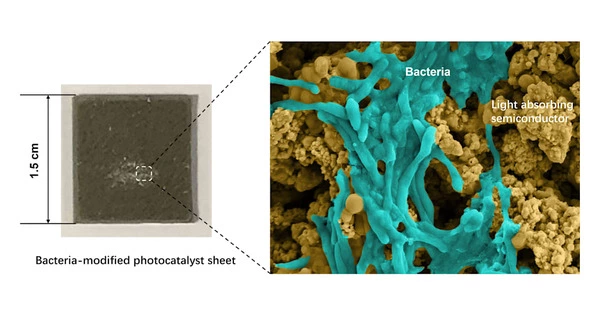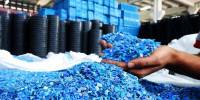A dangerous myth is that we will never be able to solve the crisis. That is not correct. To reduce greenhouse gas emissions, a wide range of technologies are now available. Improved efficiency, carbon storage, and a variety of renewable energy solutions are among them. These technologies have already been used on a large scale. We have everything we need to reduce our carbon footprint and avoid catastrophic global warming. Scientists have developed a novel technology that can aid in the fight against climate change.
Dr. Shafeer Kalathil of Northumbria University is part of a team of academics behind the project, which employs a chemical process that converts sunlight, water, and carbon dioxide into acetate and oxygen in order to produce high-value fuels and chemicals powered by renewable energy.
Bacteria are grown on a synthetic semiconductor device known as a photocatalyst sheet as part of the process, which means the conversion can take place without the use of organic additives, the production of toxins, or the use of electricity.
The project’s goal is to reduce atmospheric CO2 levels, secure much-needed green energy supplies, and reduce global reliance on fossil fuels. The findings of the team’s research have been published in the scientific journal Nature Catalysis.
Our research directly addresses today’s society’s global energy crisis and climate change. To address these grand challenges without further polluting the planet we live on, we must develop new technologies.
Dr. Shafeer Kalathil
Dr Kalathil, Vice Chancellor’s Senior Fellow, is working on the project with Erwin Reisner, Professor of Energy and Sustainability at the University of Cambridge, DrQian Wang, associate professor at Nagoya University in Japan, and partners from Newcastle University.
Dr Kalathil said: “Several incidents have demonstrated the fragility of the global energy supply, such as recent soaring gas prices in UK, the outbreak of conflicts and civil wars in the Middle East and the ecological and humanitarian threat of a nuclear meltdown in Fukushima, Japan. The search for alternative energy sources is therefore of major global importance.
“Our research directly addresses today’s society’s global energy crisis and climate change. To address these grand challenges without further polluting the planet we live on, we must develop new technologies. The generation of electricity from renewable sources such as wind and solar has increased, but these are intermittent in nature. When the wind does not blow or the sun does not shine, we need technologies that can produce storable fuels and sustainable chemicals to fill the void. Our research tackles this issue head on.”

“As well as securing additional much-needed energy supplies, our sustainable technology can reduce greenhouse gas emissions and play a key role in the global drive to achieve net zero.”
Efficiency is the low-lying fruit of reducing emissions. Improving fuel economy, making buildings more efficient, and improving power plant efficiency helps bring down emissions cheaply and quickly.
The European Research Council, UK Research and Innovation, and Research England’s Expanding Excellence in England Fund provided funding for the project, which assists higher education research units and departments in expanding and increasing their activity. The Research England grant was obtained through the Hub for Biotechnology in the Built Environment (HBBE), a collaboration between Northumbria and Newcastle University that has received a total of £8 million from Research England for project work. The HBBE, which was established in August 2019, develops biotechnologies to create environmentally friendly buildings capable of metabolizing waste, reducing pollution, generating sustainable energy, and improving human health and wellbeing.
Dr. Kalathil, who is heavily involved with the HBBE, stated: “The HBBE’s goals align with what we’re trying to accomplish with our research, which is to address key environmental issues confronting our society today and in the future. This emerging field of research represents an interdisciplinary approach that combines the strengths of microbes, synthetic materials, and analytical techniques for chemical transformation, and it provides an excellent platform for producing high-value, environmentally friendly fuels and chemicals at scale. We are already in discussions with international chemical manufacturers and cosmetics manufacturers, with the ultimate goal of commercializing our technology.”
Our economy exists within and is influenced by our environment. A healthy environment is required to sustain a healthy economy. If the environment deteriorates, so will our economy. Make no mistake: transitioning our society to a zero-carbon future is a massive and difficult task. Nonetheless, we have the necessary technology; all we need is the political will to make the change. Every action we take now will reduce our vulnerability to future climate impacts.
















